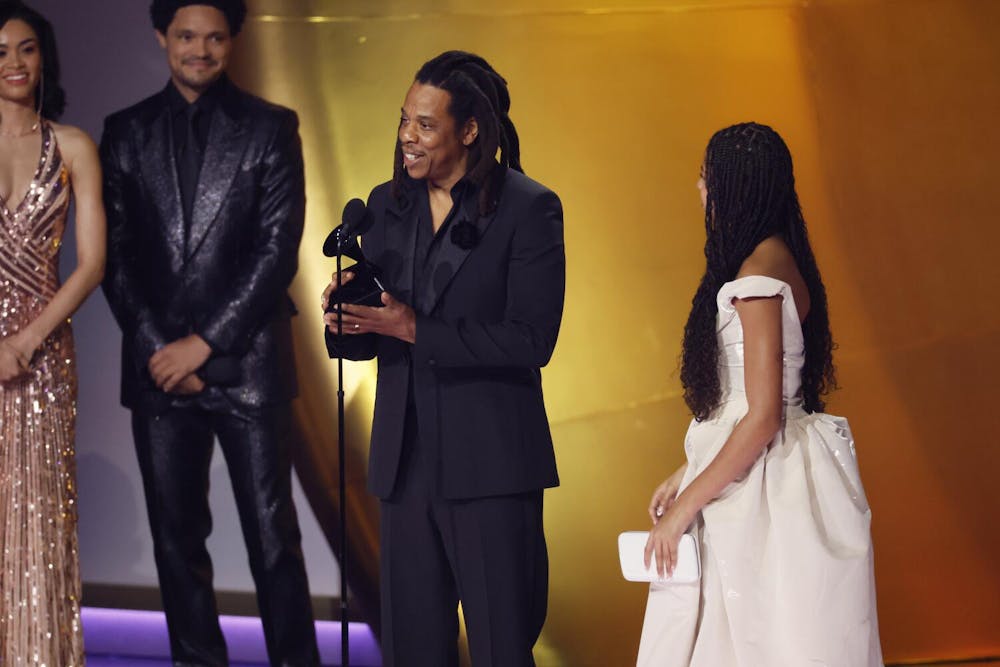Despite being a night dedicated to admiring and recognizing artists from all backgrounds, with all beliefs, who create various types of music, Sunday night’s Grammy Awards fell short this year on nearly all fronts.
To highlight some much-needed commemorations, Victoria Monet was awarded best new artist for her latest and most popular album, “JAGUAR II.” Legendary artist Tracy Chapman was also featured during the show for a rare performance of “Fast Car” with Luke Combs, the country music star who brought the song back into conversation by releasing a cover just last year.
R&B Artist SZA did not go home empty-handed for her album “SOS,” and other artists of color were awarded, such as recognizable hip-hop figures Killer Mike and Andre 3000. However, there would be no way for audiences watching at home to know this, because the Grammy’s made the controversial decision not to televise any of the awards for the hip-hop categories.
Many can call this hypocritical, given the institution’s insistence on celebrating voices from hip-hop in the past through televised celebrations. Is it all performative?
Jay-Z may argue that. In his acceptance speech for the Dr. Dre Global Impact Award, he pleaded with Grammy voters to do better for artists of color. He cited Will Smith and Jazzy Jeff boycotting the Grammy’s in 1989, and himself in 1998, in response to rap awards not being televised.
“We want ya’ll to get it right...at least get it close to right,” Jay-Z said.
Nervously standing next to his daughter Blue Ivy Carter, he went on to bring up the fact that they have not awarded Beyonce, or any Black woman, album of the year since 1999.
“I don’t want to embarrass this young lady, but she has more Grammy’s than anyone and never won album of the year,” Jay-Z said. “So even by your own metrics, that doesn’t work.”
Anyone watching could feel the tension in the room already, but it does not hold a candle to what is seemingly the most controversial moment of the night.
It came when Annie Lennox was paying tribute to Sinead O’Connor with a performance of “Nothing Compares 2 U.” She concluded the performance by raising her fist and shouting, “Artists for Ceasefire! Peace in the world!”
She could barely get the words out before her mic was cut off.
Calling for a ceasefire in Gaza is a plea many artists have been making to our government, whether in public statements such as this or through open letters. Actors such as Susan Sarandon and Melissa Barrera have even lost job opportunities and resources by showing support for Palestine.
After a night filled with such frustration from allies and people of color, it’s a wonder why news outlets can only seem to report on Taylor Swift’s new album and her 14th Grammy win, or the moments she stood up to dance.
Do Black and Brown people have to beg to be heard by white audiences?
Annie Lennox can speak on behalf of tens of thousands of dead Palestinian men, women and children and be met with quiet applause. Jay-Z can point-blank ask the Grammys to do better and in response, get nervous shuffling and laughter. More deserving, smaller artists can lose out to powerhouse Swift, and hordes will celebrate like history has been made.
People will act shocked when their favorite Black and Brown artists stop showing up to an event that has shown little care for their culture and music, but there is little doubt that Grammy voters are pushing the future in that direction.






